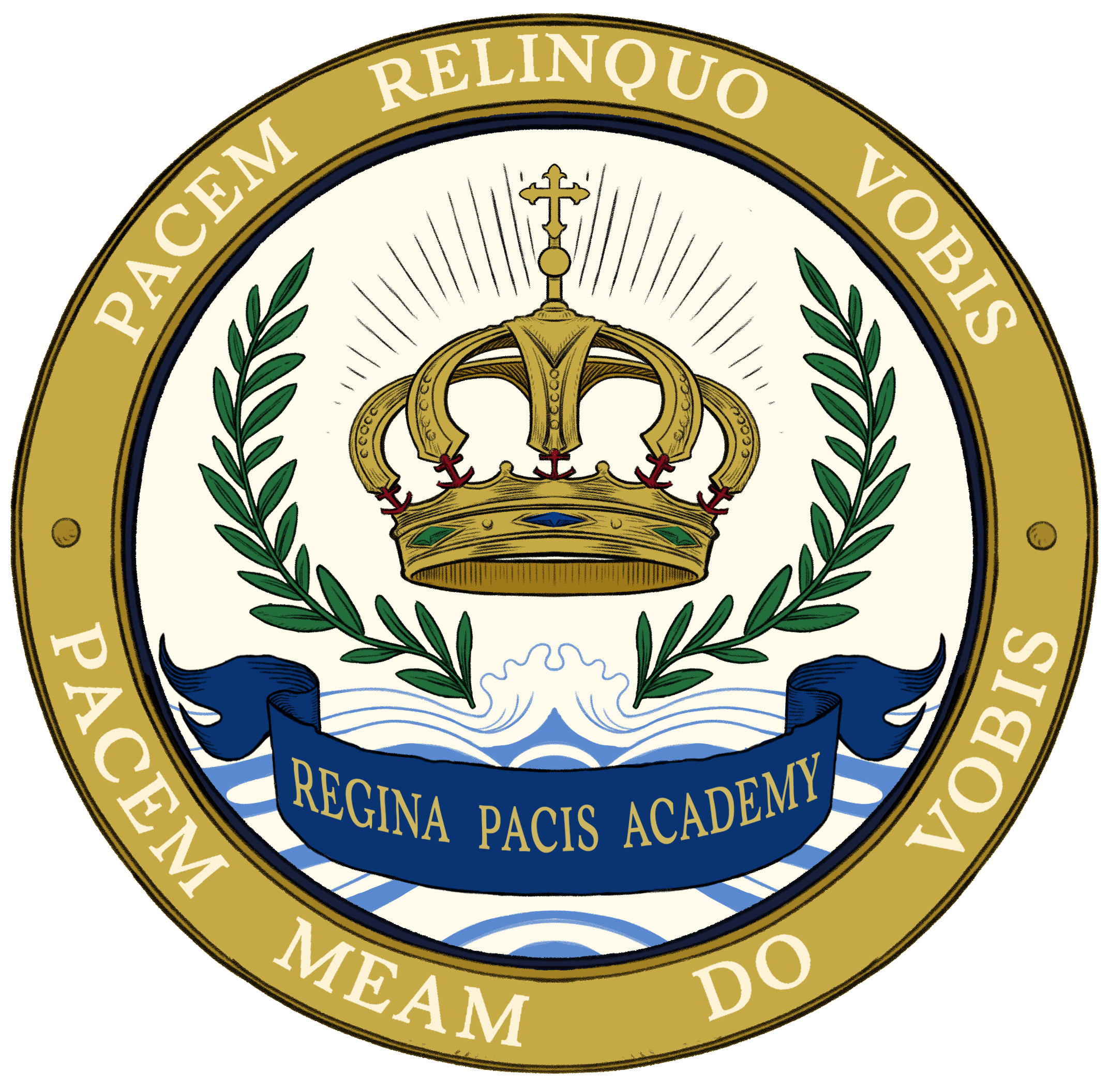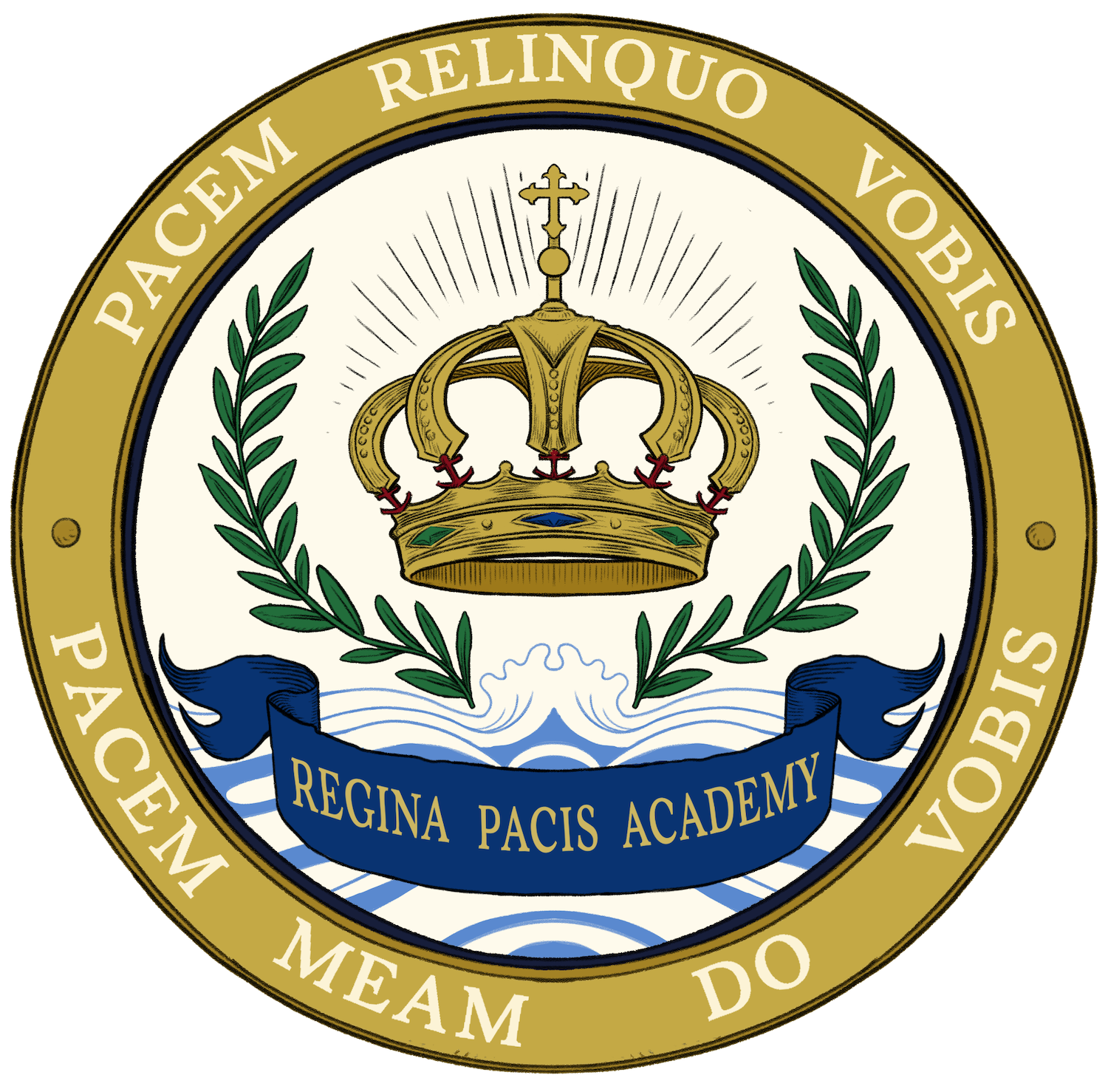The goals for our students with regard to their study of music at Regina Pacis Academy are as follows:
- that they will be part of the musically sensitive Catholic congregation of the future, literate in the musical heritage of the Church and comfortable singing in Mass
- that music will form a part of their understanding of history and culture and help them enjoy learning about it
- that they will be empowered to make music by themselves and not just be “consumers” of music
- that they will learn to be moved by music and that it will play a part in their spiritual life
As part of deepening our shared musical culture at RPA, we also incorporate great traditional hymns into our prayer life. Each month, we dedicate ourselves to learning one of the great hymns of the Christian tradition by spending a few minutes with it each morning during school-wide prayer time. The English hymn repertoire is a treasure trove of great poetry, devotion, and joy, and often has deep connections with the ancient music of the Church.
Children in Pre-Kindergarten through Fourth Grade are taught weekly according to the curricula of John Feierabend (First Steps in Music and Conversational Solfège). Feierabend’s methods are the fruit of decades of research-based music education, and designed to give children ample and early opportunity to develop their musical intelligence to the fullest. Some of the most important principles of the curricula: children should be exposed to rich and authentic repertoire (from folk music to classical); children are invited to sing by themselves and also to improvise their own musical patterns and ideas (this is the “conversational” part of the method, just like making up your own sentences in a foreign language!).
Students in Fifth Grade through Eighth Grade sing in the Schola, where they provide music for the weekly school Masses. In the classical-education tradition, training in music is the capstone of the study of the liberal arts, since music (defined classically as the study of proportions changing over time) combines elements of all the other arts. To that end, regardless of prior musical experience, we feel passionately that every student should become acquainted first-hand with the great musical tradition of the Church, which the Church has called her “treasure of inestimable value.” As stressed by centuries of Church documents up to the present day, the foundation of this tradition is Gregorian chant, and students will study both the theory (a rigorous academic approach to the notation, rhythm, and modality of chant) and practice of this music. Many great composers, from Haydn to Puccini, began their musical training by studying chant, which provides a solid foundation for any future musical interests the student may wish to pursue. The singing of chant also strengthens formation in liturgical beauty and provides a practical application of the use of Latin.

